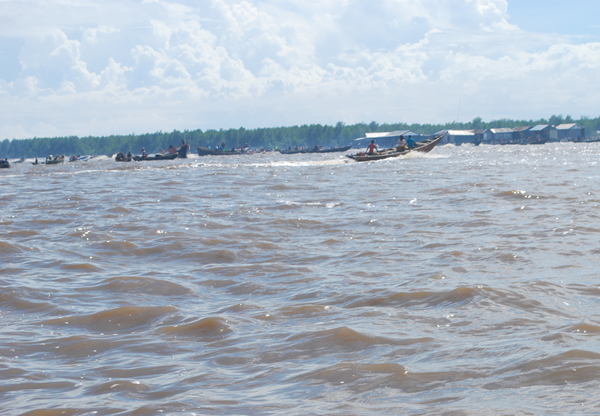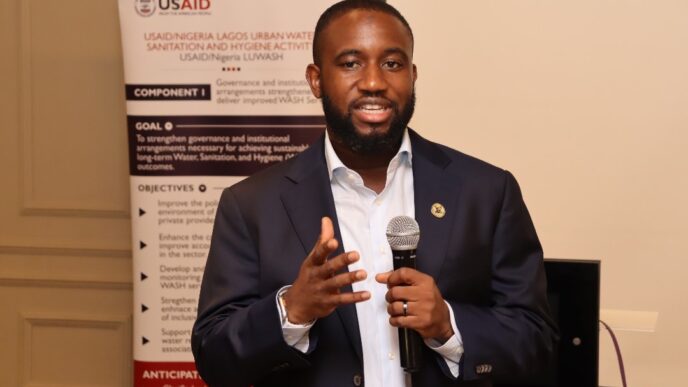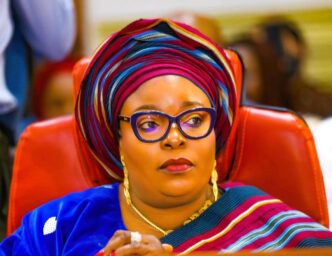The Atlantic Ocean
BY ADESOLA JACOBS
Nigeria, with its expansive coastline of 853 kilometres and approximately 10,000 kilometres of inland waterways, is undeniably a maritime nation. As the country seeks to enhance its economic growth, maritime safety, and environmental protection, the need for establishing a national coast guard has gained prominence.
During the senate public hearing on the Nigerian Coast Guard Establishment Bill 2024, on Thursday, December 5, 2024, in Abuja, the minister of marine and blue economy, Adegboyega Oyetola, noted that there it was important to strengthen the collaboration between the ministry and the Nigerian Navy in safeguarding Nigerian maritime space as practised in other climes.
Referencing a publication by the Africa Centre for Strategic Studies, the minister said “15 out of the 21 independent maritime nations in sub-Saharan Africa have dedicated coast guards, that identify themselves as such and none has our population and many of these countries do not have the length of our inland waterways or coastline”.
Advertisement
Speaking on the commercial benefits of Nigeria’s waterways, the minister said, “the project is expected to unlock the regions blue economy potentials. Hotels, beach resorts, water parks, eco-parks, ferry services, hospitality industries, industrial parks and more”.
While this proposal has garnered considerable support, some critics, including the Nigerian Navy and key political figures, have expressed reservations. However, a careful examination of both viewpoints reveals that the establishment of a coast guard is necessary and would significantly enhance Nigeria’s maritime governance, security, and environmental sustainability.
Why Nigeria needs a National Coast Guard
Advertisement
Oyetola made a compelling argument during the public hearing, emphasising the need for dedicated institutions to safeguard Nigeria’s maritime interests.
He said: “The existential threat from human activities includes pollution, unregulated coastal development, overfishing and unsustainable exploitation of marine resources, among others. It must be emphasised that the protection and sustainable use of marine ecosystems is a vital pathway for national development. It is therefore compelling to preserve these endowments and guarantee sustainable development.”
Human activity threatens many of the sea’s delicate and commercially valuable ecosystems. The coast guard will safeguard the maritime environment by enforcing Nigerian and international laws and responding to incidents. As Oyetola highlighted, “the spate of boats mishap within our inland waterways is also a strong justification for the need to strengthen our maritime safety and the enforcement of maritime laws and regulations in the inland waterways”. He added that the coast guard will ensure its protection by “establishing clear protocols, enforcing safety regulations, and overseeing navigation routes in our inland water ways”.
Speaking further, the minister stated that the search and rescue operations would be part of the coast guard’s duties, which are critical for responding to maritime emergencies, while collaborating with the Nigerian Navy, whom the minister credited for its achievements in safeguarding the Nigerian maritime space and giving Nigeria a good image worldwide.
More so, the environmental protection mandate of the Coast Guard would focus on preventing marine pollution and promoting conservation practices. “The coast guard will actively work, in collaboration with other relevant Government Agencies, to prevent pollution and enforce environmental regulations within Nigeria’s waters. Through initiatives focused on conservation and the protection of marine ecosystems,” Oyetola said.
Advertisement
The coast guard will regulate and inspect vessels and maritime facilities to reduce the risk of marine pollution incidents. When spills occur, the coast guard will lead response efforts to contain the damage. Ultimately, the coast guard will enforce environmental laws that protect commercial and endangered marine species ensuring that Nigeria’s marine ecosystems are protected and sustainably managed.
On the matter of what institution the purview of the coast guard will fall upon, the minister advocates that it should be established as a freestanding agency. He said: “This increase in economic activity will require a dedicated institution that will be responsible for ensuring maritime safety, search and rescue, environmental protection, and the enforcement of civil maritime laws.”
The National Coast Guard would be able to operate independently, similar to models in developed nations, where coast guards are placed under civilian administration. Supporters of the bill have noted that the National Coast Guard should be established as a standalone agency, noting that in developed countries, coast guards are under civilian authority, under the supervision of civilian administration. At the public hearing, it was suggested that the proposed coast guard should be under the supervision of the federal ministry of marine and blue economy.
This setup ensures that the agency remains agile, responsive, and capable of addressing emerging maritime challenges without the bureaucratic constraints often associated with military oversight. Furthermore, the proposal to place the Coast Guard under the Ministry of Marine and Blue Economy aligns with global best practices, where maritime safety, resource management, and environmental protection are the core focus of such agencies.
Advertisement
Addressing concerns
Opposing the Coast Guard Bill, the chief of naval staff, Vice Admiral Emmanuel Ikechukwu Ogalla, represented by Rear-Admiral Olusegun Ferreira of the Nigerian Navy, and chairman of the senate committee on interior Adams A. Oshiomhole, have raised several concerns, mainly around redundancy, security risks, and the financial burden of establishing a new agency. These concerns, while valid, can be addressed through strategic planning and careful consideration of Nigeria’s unique needs. One of the central criticisms is that a National Coast Guard would duplicate existing maritime functions already being carried out by the Nigerian Navy and other agencies like NIMASA.
Advertisement
Critics argue that adding another agency would lead to a waste of resources and unnecessary overlap. However, the proposed coast guard is designed to complement rather than replace existing institutions. As Oyetola pointed out, the Nigerian Navy has done commendable work in safeguarding the country’s maritime borders and has effectively collaborated with NIMASA through the Deep Blue Project, which has helped curbed piracy in Nigeria territorial water in the last three years. Nonetheless, the sheer scope of Nigeria’s maritime space requires specialized attention.
A coast guard would focus specifically on maritime safety, search and rescue, and environmental protection, areas that are sometimes overshadowed by the military’s broader defense responsibilities. By focusing on these specific domains, the coast guard would reduce the burden on the navy, allowing it to concentrate on national defense while enhancing the nation’s overall maritime security.
Advertisement
Also, Ferreira raised concerns about the overlap of military functions with a coast guard, especially in the context of global standards where many nations, such as the UK, have separate coast guard agencies focused on non-military tasks.
Other critics argue that creating a coast guard with military powers could lead to security risks and inefficiencies. However, it is important to recognise that the proposed coast guard would not be another military force in competition with the navy. It would have distinct operational mandates that align with civilian oversight, such as maritime law enforcement, environmental protection, and humanitarian rescue missions.
Advertisement
This distinction allows for a clear separation of duties between the coast guard and the navy, fostering efficiency in both sectors. Additionally, the idea of inter-agency collaboration, as advocated by the Minister, would ensure seamless coordination between the coast guard, navy, and other military and paramilitary agencies. Joint training, technology and information sharing, and coordinated missions would enhance operational efficiency and eliminate potential conflicts.
“To this end, we advocate the setting up of effective and coordinated machinery for seamless collaboration with the Nigerian Navy, and other armed forces, as well as key agencies in the country, to further enhance the protection of our maritime resources. This will include technology and resource sharing, joint maritime exercises, missions and training to enhance maritime safety and foster cooperation,” Oyetola stated during the hearing, again highlighting the importance for collaboration with relevant agencies.
The establishment of a new agency requires substantial investment in infrastructure, personnel, and operational resources. However, the concern over financial constraints can be addressed through a phased implementation strategy, where initial focus is placed on creating essential infrastructure such as operating basins along the coastline. These operating basins would reduce transit times for coast guard vessels and increase operational efficiency.
Moreover, the coast guard could also benefit from international collaboration, securing foreign partnerships and technical assistance to offset initial costs. The blue economy presents a significant opportunity for Nigeria to generate revenue through sustainable fisheries, tourism, and maritime trade. Investing in a coast guard would contribute indirectly to long-term economic growth that far outweighs its initial setup costs.
In conclusion, the establishment of a National Coast Guard is a necessary and strategic investment in Nigeria’s future. Most importantly, the bill must be thoroughly reviewed to incorporate stakeholder input and address any existing gaps. With careful implementation and adequate support, the coast guard could shape Nigeria’s maritime future, preserving the nation’s marine ecosystems for generations to come.
Views expressed by contributors are strictly personal and not of TheCable.









